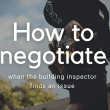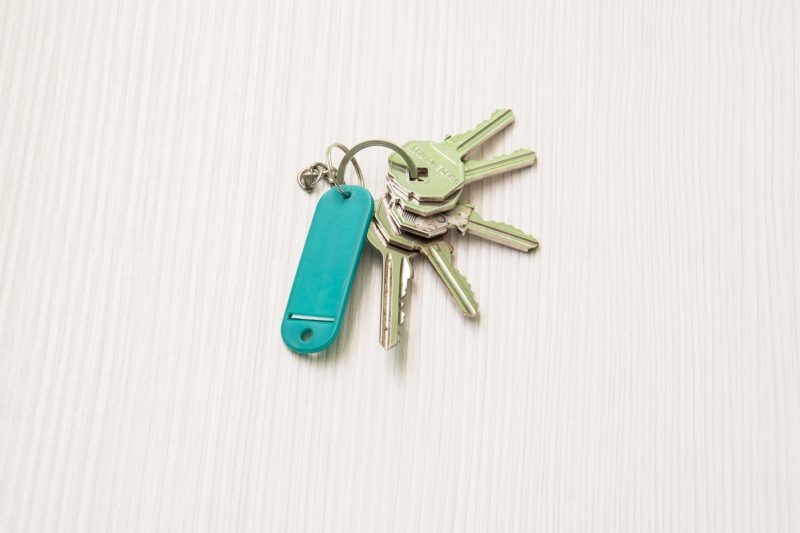After more than a decade in real estate. I have seen the value that a really good salesperson can add to the process. I have seen houses sell for prices that blew me away – because the salesperson running the marketing campaign knew how to position the property. They knew how to attract the right buyers and how to create competition.
At the same time, I understand the attraction to the DIY approach. We are born do-it-yourself-ers.
I am the least handy person I know. But when there is a room in our house that needs to be plastered and painted, I still think I can do it. We recently had the exterior of our house painted and up until the last minute I was still planning to do it myself.
So I get it. And since you are probably going to try it anyway, I’ll tell you what I know. These are the real tips too. This isn’t one of those ‘DIY’ articles that drip feeds you tips as ‘reasons why you are being stupid trying to do this‘. No, this is genuine advice.
If, on the other hand, you decide to put it in the too-hard basket, I can put you in touch with the right person.
Need help specific to your situation? Book a one-on-one consultation online.
How to sell your home privately (if you want to)
Step 1. Get a valuation done.
If you are adamant about selling your home privately, don’t waste time interviewing 3 agents you aren’t planning to use. That’s not a very nice thing to do. Hire a registered valuer so you have a report from a qualified professional that you can take stock in.
Also read, How to work out the value of any property – the 5 step home valuation method.
Whatever you do, don’t just sell it for your Rateable Value and think you have done well. Rateable Values (RV’s) are estimated numbers provided by Councils without visiting the property to decide how much you should pay in rates. They are not an accurate valuation.
Step 2. Talk to your solicitor
If you have already met the buyer, then this will be the best way forward. If you are selling your home to a family member, tenant, friend (or a friend of a friend), then the easiest way to do this would be for both parties to get a registered valuation. You might agree to sell for a price that is in the middle of those 2 valuations. Any property solicitor can then help you fill in the paperwork and complete the transfer for you.
Just keep in mind that when your sell your home privately without testing the market, you run the risk of under-selling your biggest asset.
Step 3. Provide reports from reputable providers
Know what you are selling. This is critical. When you market your home privately, you can attract every bargain hunter in your town (and beyond). Get your own builder’s report from a reputable source so that you know upfront what is wrong with your property. Don’t let someone else negotiate you down unnecessarily.
Check out: Should sellers provide a LIM and builders report?
You will also want to order a LIM (Land Information Memorandum) from your local Council. Most buyers will want to see this and they can take up to 10 working days to arrive once ordered. So save everybody some time and order it upfront.
Step 4. Decide on your marketing channels
Listing on trademe goes without saying. But you might also want to consider posting on facebook, dropping flyers around your neighbourhood, or in a busy place in your area that buyers might be visiting.
Step 5. Decide on your marketing strategy
Are you going to run a Tender? Are you going to use an asking price? The hardest part about selling your own home is co-ordinating competition. What are you going to do if more than 1 person wants to buy your home? How will you manage that process? It is worth contemplating this outcome in advance.
I would suggest running a Tender or at least having a ‘deadline for offers’ and try to avoid selling prior to this fixed date. This might sound strange, but the most common mistake I see private sellers make is to sell their home too quickly. Real estate agents love to say ‘your first offer is your best offer’ but throughout my career, I have found that to be a total myth.
Read: Why a fast sale might not be a good sale.
Step 6. Prepare a disclosure statement
What do you know about your house that a willing buyer should also know before buying it? Don’t hold back or cover things up here. The quickest way to build trust with a potential purchaser when you are trying to sell your home privately is to tell them about your property, warts and all.
Buyers usually don’t sweat the small stuff so it shouldn’t cost you the sale to divulge that there is a big stain under that rug or that your back porch does not have council consent. NZ is a small place so you are better to be upfront about such things in case you meet the buyer again one day down the track.
Make sure you encourage your buyer to get their own independent advice too. Especially if you are selling to family. That way they have someone to blame other than you if/when things go wrong.
Step 7. Hire a professional photographer
Whatever you do, don’t take the photos yourself if you choose to sell your home privately. Hire your wedding photographer if you have to but get professional pics. The quickest way to reduce the value of your property is to put average photos online that don’t show it off to its full potential.
Step 8. Think very, very hard about pricing
Most agents screw this part up and it’s their job. Try and be objective about the value of your home. In my experience, most private sellers either vastly underestimate the value of their home or vastly over-estimate it. Visit at least 10 open homes in your area and find out what they sold for before you list, so you have some comparisons to go on. Also, re-visit step 1 until you feel confident with your price expectations.
Step 9. Put buyers at ease with a detailed advert
Don’t skimp on the detail in the hope that you will thereby encourage buyers to enquire. Buyers want as much information as possible before they pick up the phone or send you an email. Make it easy for them to fall in love with your property by posting lots of photos and writing a big long script online.
Step 10. Schedule open homes
Make it easy for buyers to view your home. You should also specify in your advert the best times to call you for more info.
Step 11. Don’t be in a rush to sell
Give yourselves a backup plan. Make sure you can walk away from an offer that doesn’t feel right. Most people only get to sell a few houses in their lifetime so you don’t want to put yourself in a high-pressure situation where you are forced to sell and potentially have a bitter taste in your mouth for years to come if it doesn’t go to plan.
Step 12. Watch out for master negotiators
All the sharks come out to play when they smell a real estate bargain. The more info you have at your disposal (builders report, LIM, valuation, recent nearby sales) the less likely you are to get duped.
In conclusion…
It’s ok if selling your home privately doesn’t work out. Not selling should not be considered failure. Good on you for giving it a go! Before you slash your asking price, talk to a few local agents and see if it’s worth hiring someone to represent you.
Need help specific to your situation? Book a one-on-one consultation online.









